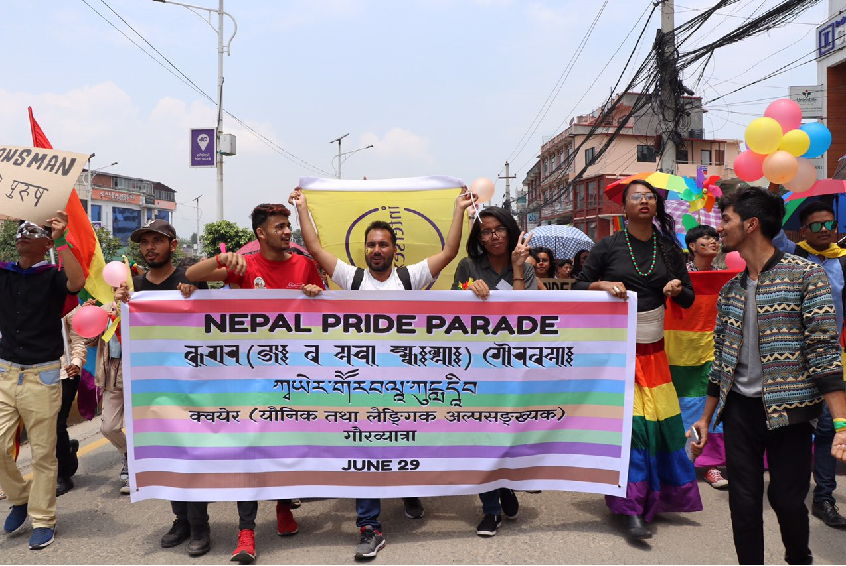

Homosexuality was legalised in Nepal in 2007 along with the introduction of several new laws. These new laws explicitly include protections on the basis of sexual orientation.
Nepal became the first country in Asia to provide a third gender marker in official government documents. Nepal solidified its reputation as a model for the LGBTIQ+ rights movement in South Asia when sexual and gender minorities were finally granted full and equal rights under Nepal’s new constitution in 2015.
The Supreme Court has dictated that the category ‘other’, representing non-cisgender identities be added to all official documents, and Nepal is providing citizenship certificates to reflect the new status. The government has started issuing citizenship certificates with an ‘other’ (‘O’) option to transgender people on a rolling basis. This allows for ‘third gender’ identifying individuals to open bank accounts, own property, and register for universities.
Nepal military law does not explicitly forbid LGBTIQ+ people from serving in the Nepal Army.
There are organisations helping this community like the Blue Diamond society with more than 50 different branches spread across the country, Mitini Nepal, Parichaya Samaj, and Sahaayam Nepal.
There has been an increased level of participation in the political arena by openly LGBTI politicians such as Sunil Babu Pant, the first openly gay parliamentarian in Asia.
The new Constitution, approved by the Constituent Assembly on September 16, 2015, includes several provisions pertaining to the rights of LGBT people but does not address same-sex marriage.
But what about same-sex marriage?
Suman Pant, whose case at the Supreme Court established a precedent for same-sex spousal visas, shares, “I am quite lucky when it comes to discrimination. People around me were nice to me and I had the support of my wife. The ‘visa’ case was a difficult fight, but in the end, the battle was in our favour.”
While talking about the current situation of the LGBTIQ+ community, she states “Yes, our constitution has many laws in favour of the LGBTIQ+ community, however, it is always the interpretation that determines the strength of the law. Also, the law is interpreted in different ways in different ministries which makes it very difficult for the LGBTIQ+ community to get its work done. There are many laws that are even contradictory to themselves.”
She married her wife Leslie Luin Melnik in the United States, so the marriage aspect was not a problem. However, talking about her ordeal in getting a visa, Pant says, “Fighting for your rights is not an easy battle. Due to lack of awareness people in government offices do not understand you. It is time-consuming and expensive.”
“Legalisation of same-sex marriage is not enough. Strong interpretation and implementation are important,” she adds.
Psychotherapist Hashana Shrestha, working at Samatha Psychosocial Care, says that people are not opening up due to the stigma attached to such issues.
She mentions that the Nepali society has still not included them in the range of normalcy. “People fear what they do not understand and when there is low social acceptance so many people are still hiding in the closet,” Shrestha says, adding, “There are many who are scared to reveal anything about their personal feelings or experiences for fear of discrimination.”
She says that people should be made aware that belonging to the LGBTIQ+ community is normal. “It has to start from the school where children are taught to accept each person’s individuality and feelings,” Shrestha adds.
“What we all need to also realise is that no matter how many policies and laws we introduce the society has to first learn to recognise, respect and accept everybody’s social or personal orientation,” she states. “It is time we adapt to the changing scenario and accept same-sex marriage as a normal activity between two individuals who want to share their lives together,” Shrestha adds.